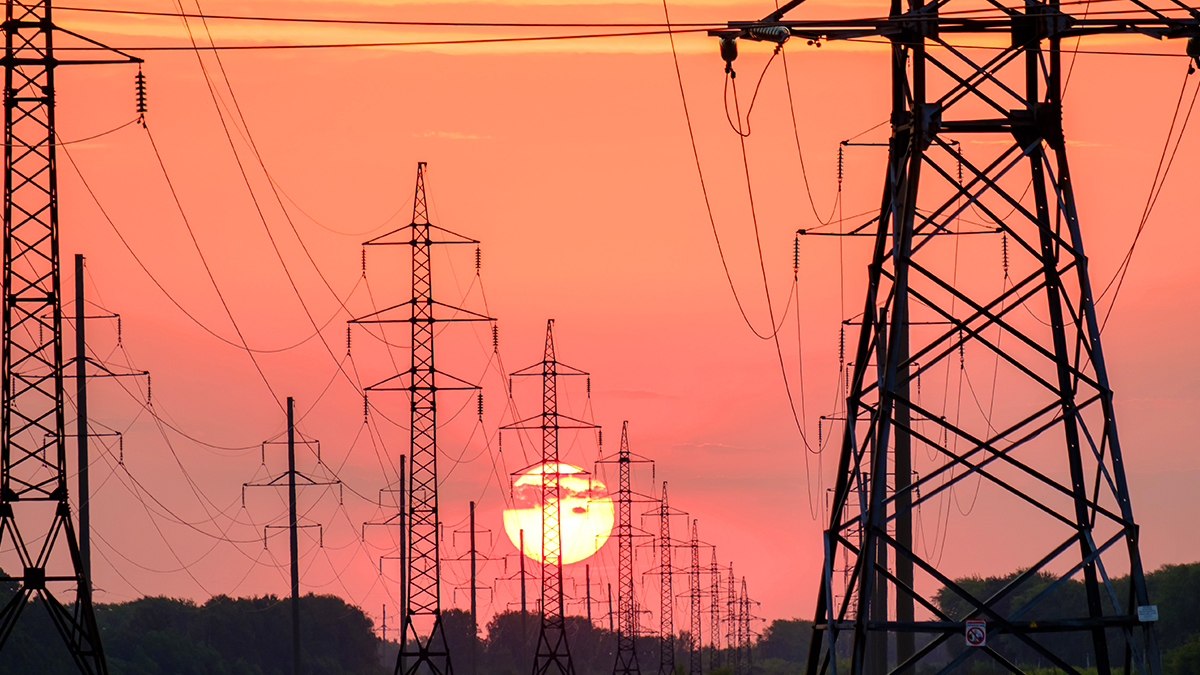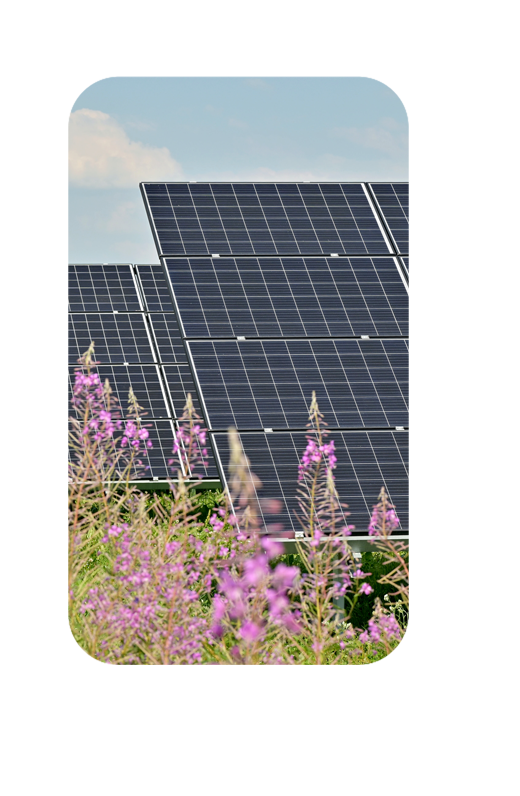
The Path Forward
In our recent articles, I have spoken about our company’s commitment to business and environmental sustainability and decarbonization; some of the challenges that our market and business face. This month, I am going to speak more personally about this, and my path to commitment.
The Path Forward: Committed to Creating Change
“At the moment of commitment, the entire universe conspires to assist you.”
~ Johann Wolfgang von Goethe

I feel fortunate to be part of an organization that is so heavily committed to our society’s need for decarbonization and electrification. As a leader who has always worked to align our company’s mission and vision with a higher purpose, it is extremely rewarding to be able to invest and guide our people and resources in this direction. I have reflected a lot on my personal path and commitment to our mission to do all we can for decarbonization.
Humans demand a lot of energy, and currently most of what we use comes from oil, coal and natural gas – sources that are limited and cannot be fully recycled in nature. By contrast, our renewable natural energy sources, widely distributed on earth, are vastly greater than we currently use. To create a sustainable society, we must draw on renewable natural sources, like wind and solar energy, that are replenished at a faster rate than they are consumed. However, for our communities to use these energy sources, we need a reliable, expansive and efficient electrical transmission and distribution grid, which means our current electrical grid requires a significant transformation.
Currently, 70% of the more than 50 million transformers in North America are either at or past their design life. To expand our grid and renewable energy generation systems, we need to enable electric transportation systems through zero emission vehicles (ZEV). Our governments are mandating change and setting aggressive targets for ZEV over the next 10–15 years. Canada and many US states have mandated new light vehicle sales to be 100% ZEV by 2035. It is an immense amount of work to complete within an extremely challenging timeline.
To move on a path of energy sustainability, we need to replace, renew and expand our electrical energy generation, distribution and use systems. Sustainability can be a difficult concept. It challenges me to think deeply and to guide my actions and decisions far beyond day-to-day concerns and circumstances. My work on this challenge has come to mean “fulfilling our current needs, without compromising the resources for future generations.” It represents a vision of the infinite, which is in contrast to much of my life experience with things that have a beginning and an end.
I must take my commitments to sustainability seriously. I must continue to broaden my perspective and my thinking. My work and my pursuits need to go well beyond myself and the company I lead. Any transformational change first requires a significant change in how I think and act. I must first change to create change.
I must make a full commitment to this.
“We cannot solve our problems with the same level of thinking that created them.”
~ Albert Einstein
To support environmental health, we need to make some big changes. Our industry and the supply chains to support this change have major obstacles. The current supply chains for materials and components cannot keep up with today’s demand, let alone increase their output. In fact, many transformer OEMs are trying to increase their output over the short term by 30% just to meet today’s demand.
Currently, we rely heavily on regions of the world outside of North America for raw materials, parts production, technical expertise and supply chains for key elements of our electrification plans (i.e., power transformers and EV powertrains). Automobile OEMs are just starting the process to ramp up local EV production and to strengthen their associated supply chains in North America. In many cases, the technical, raw material and component production are competing for resources across many sectors, especially in electrical transformer and motor design and production.
We must face these challenges head on, by making the needed changes to enable us to achieve our goals. As Einstein guides us, we need to change some of our thinking to solve the problems we have created.
A group, industry or community does not change all at once. It begins with individual change in our thinking and in our perspectives. In this regard, there are several ideas that have significantly influenced my thinking, and my level of commitment to sustainability and environmental health and protection.
Seven Generations: The Seventh Generation Principle is based on an ancient Haudenosaunee (Iroquois) philosophy that the important decisions we make today should result in a sustainable world seven generations into the future. We must always consider the impact of our decisions on our children and grandchildren of the future. We have a responsibility not just to ourselves, but to be good ancestors.
Strategic Collaboration to a Common Goal: I believe at the business leadership level we need to significantly increase the level of strategic collaboration across companies, and through supply chains. As we collaborate, we’re exposed to different ways of working and problem solving, which can inform our creative processes and create great innovations and effectiveness. A creative back-and-forth between groups and organizations should be based on mutual care and a common goal. Our competitive minds need to be focused on the infinite game. Competition serves the ego. Collaboration supports the highest outcome.
Shared Economic Value: As business leaders, it is our responsibility to our shareholders and stakeholders to be profitable and create economic value. Some believe that strategic collaboration between companies hurts profitability. If trust and common goals exist, then the opposite is true. Companies, governments and NGOs must collaborate for us to achieve our decarbonization and electrification goals. As Michael Porter wrote about this idea in his 2011 Harvard Business Review article entitled “Creating Shared Value, Changing the Way Business is Done”, business has the greatest chance to help our future societies solve complex problems. We need to find a path to work together to create more value and be open to sharing it.
I have thought a lot about how I can contribute to the broader human needs ahead, support the vision of our company and add value to our clients and stakeholders. We, like many other businesses, are struggling today to create change and expand our output at the needed pace. Our company’s commitments are growth, reliability and collaboration to fulfill our OEM client and electrical energy systems needs. There is significant work to be done, but our focus remains on creating solutions toward a sustainable, clean and renewable-energy future while working outside of the forces of ignorance and self-interest. It is truly our time to lead.
This past January, my first grandchild was born. His name is Aiden. In 2050, when he is twenty-seven, I want him to be able to say, “My grandfather had an opportunity to make things healthy for us, and he acted with courage, took a chance and made an impact.” These are the thoughts that guide my leadership path forward. As a great mentor taught me decades ago, true leaders hold the philosophy, “If it is to be, it is up to me.”
Thank you for listening.
Ron Harper
President/CEO, JFE Shoji Power Canada Inc.
JFE Shoji Power Canada is a wholly owned subsidiary of the JFE Group, headquartered in Tokyo, Japan. JFE is a steel products and engineering company. JFE Shoji Power Canada is part of the electrical steel products and components group, which are critical materials for electric motors, generators and transformers. JFE is a leading supplier of these materials and products worldwide and has strong commitment and ambition to serve and lead the expanding global markets for decarbonization solutions, particularly related to electrical energy transformation.
